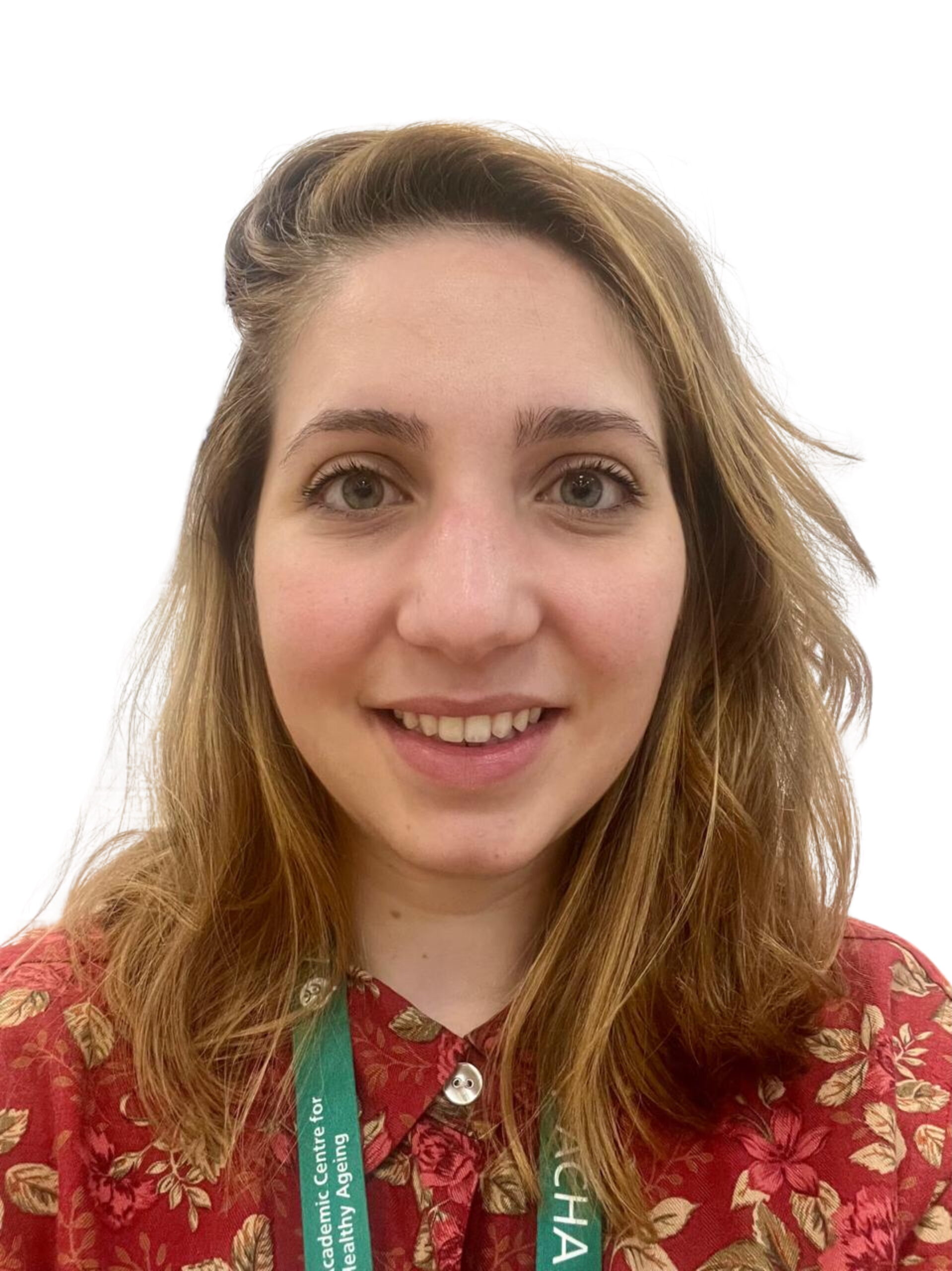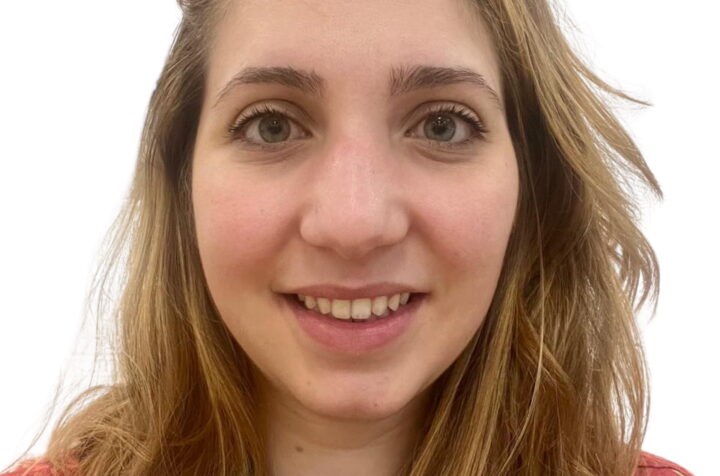Author
Natália Rocha Tardelli
Posted on
18 March 2025
Read time
5 minutes

Natália Rocha Tardelli is a Brazilian geriatrician and internal medicine consultant/physician who completed her final month of geriatrics training at Whipps Cross Hospital, undertaking a Clinical Observer Fellowship through ACHA in February 2025. She holds a master’s degree and is currently a PhD candidate, focusing her research on advance care planning. She is currently a clinical fellow in cognitive and behavioural neurology in Brazil. Here she writes about her experiences at ACHA and Whipps Cross Hospital
In 2024, before starting my internship at Whipps Cross Hospital, Professor Gordon asked me, “What would you like to gain from this experience?”
At the time, I was nearing the end of my geriatrics training in Brazil, and I answered that I wanted to learn more about geriatric practice in the UK to improve the assessment of my patients in Brazil and broaden my horizons.
It was then that Professor Gordon and the rest of the team at ACHA generously welcomed me, allowing me to experience something truly unique!
A New Perspective on Geriatrics: Practical Learnings, Science, and Health Equity
Undoubtedly, I acquired new knowledge related to geriatric practice and comprehensive geriatric assessment, particularly in the hospital setting. I will carry these insights and approaches with me to provide better care for my patients.
Furthermore, this experience made me reflect on the role of the geriatrician as an educator – whether in guiding patients, training new generations of doctors, or working collaboratively with other healthcare professionals. This philosophy, embraced by all the geriatrics consultants who welcomed me, led me to reassess my professional stance, placing even greater value on the collective construction of care plans.
Beyond the best clinical practices I was able to acquire at Whipps Cross Hospital, my experience as a clinical observer provided me with something even more valuable: the opportunity to observe and engage with the NHS through the academic interface of the Academic Centre for Healthy Ageing (ACHA). This experience reinforced for me the importance of integrating science with healthcare provision to ensure the sustainability of the healthcare system itself.
The Problem of Disconnection Between Science and Public Health
It seems obvious to state that combining science with clinical practice results in better data and evidence, which translate into more effective clinical practices. However, in reality, this connection is not always natural, especially in healthcare systems that are increasingly privatised and distanced from social responsibility.
In Brazil, most non-university healthcare services are unable to incorporate research into their routine. The reasons behind this disconnect are complex: on the one hand, the Brazilian public and private healthcare systems, which coexist, are generally not structured to make room for research within the daily practices of healthcare professionals. On the other hand, medical training in the country does not typically emphasise the importance of translational research in clinical practice as a means to drive improvements and ensure the sustainability of the public health system. This creates a vicious cycle in which the healthcare system operates separately from research, and professionals within it fail to question the impact of this model on the healthcare system and, most importantly, on the well-being of the population, thereby perpetuating this approach uncritically.
The result? We import knowledge and products from high-income countries, reinforcing structural scientific dependence. Additionally, an increasing number of researchers rely on funding from the pharmaceutical industry, distancing themselves from the public healthcare system. This prevents science from being used as a tool to strengthen our public healthcare system (Sistema Único de Saúde – SUS), on which around 70% of the population depends exclusively for healthcare access.
Added to this is the fact that Brazil faces a scenario of structural public resource scarcity for both healthcare and Research and Development (R&D) – according to the World Health Organization (WHO), public health expenditure per capita in Brazil is nearly seven times lower than in the UK and according to UNESCO,Brazil invests 1.15% of its GDP in R&D, while the UK invests 2.91% of its GDP. This prevents us (Brazilian healthcare professionals) from making bold strides to transform this reality.
The Impact of Population Ageing
In low- and middle-income countries, we are experiencing accelerated population ageing. Data from 2022 showed that the number of older adults in Brazil increased by 57.4% over the past ten years. Figures from 2023 indicate that Brazilian life expectancy at 60 years is 22.5 years, and at 80 years, it is 8.9 years. However, our real challenge is not just living longer—but living without quality.
Between 2013 and 2019, the percentage of older Brazilian adults with functional limitations for basic daily activities rose from 7% to 9%. Furthermore, 5.8% of Brazilians rated their health as poor or very poor.
Unlike high-income countries, where ageing has been a more gradual process, in middle- and low-income countries, it has occurred rapidly and has been associated with significant declines in quality of life. Without structural government investments in preventing pathological ageing and related diseases, as well as in a comprehensive ageing care policy, we risk condemning this population, at best, to mere survival without dignity. Additionally, the economic burden will be immense, not only for the healthcare system but also for the economically active population, which will be increasingly responsible for caring for elderly family members—a common reality in Brazil, where care remains predominantly family-centred.
The Challenge for Physicians and Researchers in Middle-Income Countries
The exchanges of experiences I had within the NHS left me with a clear message: for us, physicians and researchers from countries still grappling with the legacies of colonialism and inequality, the challenge extends beyond healthcare provision. We must demonstrate to governments and funding agencies that investing in research and education is not a luxury – it is a fundamental strategy for healthcare system sustainability. We must harness our great potential to create new solutions that directly address the specific contexts in which we operate.
Acknowledgements
To the registrars, consultants, professors, other healthcare professionals and researchers from Whipps Cross Hospital: my heartfelt thanks for all the knowledge I will carry forward into my geriatric practice. Thank you for inspiring me in research and education. Thank you for being a reference for health equity.
To ACHA: my deepest gratitude for opening doors to geriatricians from middle- and low-income countries. This exchange may be a first step towards ensuring that health equity is not a privilege of wealthy nations but a global reality.





